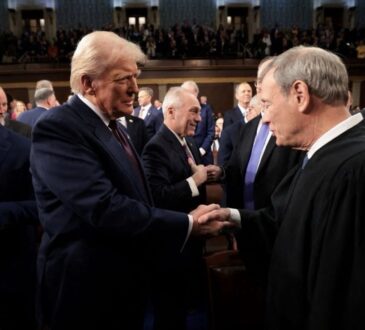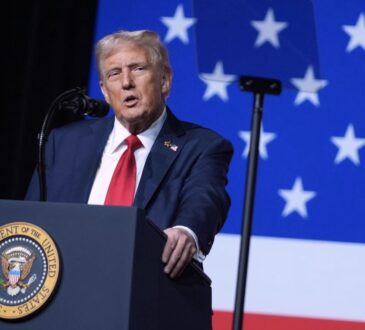
Former President Donald Trump faced two major legal defeats on Thursday, as federal judges in Illinois and New York both ruled against actions taken by his administration.
In Illinois, a federal appeals court stopped the Trump administration from sending National Guard troops into the state. In New York, another judge ordered the government to restore nearly $34 million in anti-terrorism funding that had been taken away from New York City’s public transit system.
Both rulings send a strong message that even a president’s powers have limits under U.S. law and the Constitution.
A three-judge panel from the U.S. Court of Appeals for the Seventh Circuit decided that Trump’s attempt to deploy National Guard troops in Illinois was not justified. The administration said it wanted to use the troops to protect federal officers and property during protests related to immigration enforcement.
Trump’s team claimed the situation amounted to a “rebellion” under a federal law that allows the president to call up National Guard troops during times of extreme civil unrest. But the judges disagreed, saying there was no real rebellion or danger of rebellion, and that “political opposition is not rebellion.”
The court’s ruling upholds an earlier decision from U.S. District Judge April M. Perry, who had temporarily blocked the deployment. Illinois Governor J.B. Pritzker had refused to cooperate with the federal order, saying the move was unnecessary and politically motivated.
The judges also rejected the administration’s argument that the president’s decision to deploy troops couldn’t be reviewed by the courts. They said that nothing in the law gives the president unchecked power to make that decision on his own.
White House spokesperson Abigail Jackson defended the administration’s actions, saying President Trump “acted lawfully to protect federal officers” and that the government plans to appeal.
A few hours later, in a separate case, U.S. District Judge Lewis A. Kaplan ruled against the Trump administration for withholding $33.9 million in federal anti-terrorism funding from New York City’s Metropolitan Transportation Authority (MTA).
The administration had argued that New York didn’t deserve the funds because it’s a “sanctuary city,” meaning local authorities don’t fully cooperate with federal immigration enforcement. But Judge Kaplan said that reasoning was illegal and “a blatant violation of the law.”
The money comes from the federal Transit Security Grant Program, which Congress created after the September 11 attacks to help protect major public transportation systems. By law, the funds must be given out based only on risk not political factors.
Kaplan pointed out that New York’s subway and train systems have been targeted in several terrorism plots over the years, making the city one of the highest-risk areas in the country. He ordered the federal government to restore the funding immediately.
New York Governor Kathy Hochul and State Attorney General Letitia James celebrated the ruling, saying it was “a victory for every New Yorker who rides our subways, buses, and commuter rails.”
Both rulings highlight a growing legal debate about how far a president’s powers can go, especially when it comes to domestic law enforcement and federal funding.
The Illinois decision reaffirmed that courts can review and limit presidential decisions about troop deployment inside the U.S., while the New York ruling made clear that the White House cannot use funding to punish states or cities for their political positions.
These cases now move toward likely appeals. The administration could ask the Supreme Court to allow troop deployment in Illinois while the case continues, and it may also appeal the New York funding order to a higher court.
Together, the rulings signal that the judiciary is continuing to play a key role in checking presidential power something that could shape Trump’s ongoing legal and political challenges in the months ahead.




